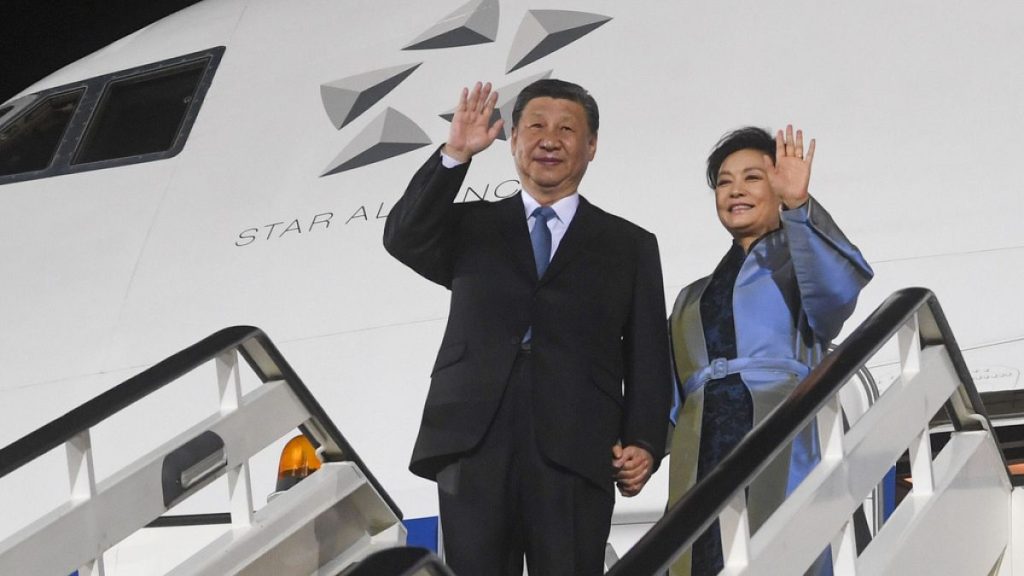Chinese leader Xi Jinping visited Serbia on the 25th anniversary of the bombing of the Chinese Embassy in Belgrade during NATO’s intervention over Kosovo. The bombing, which occurred in May 1999, resulted in the deaths of three Chinese nationals and injuries to 20 others. Xi directly referenced the bombing in an op-ed published in Serbia’s Politika newspaper, emphasizing that the Chinese people value peace but will not allow historical tragedies to be repeated. The US apologized for the bombing at the time, attributing it to an intelligence error that resulted in the mistaken targeting of the Chinese Embassy instead of the intended target, a Serbian state arms exporter.
The missile strike in Belgrade in 1999 took place during NATO’s intervention over Kosovo, with the aim of ending the brutal attacks by Yugoslav leader Slobodan Milošević against ethnic Albanian rebels in the region. The US claimed the bombing of the Chinese Embassy was a mistake, apologizing for the error and attributing it to faulty intelligence. The incident led to growing closer relations between China and Serbia, with China becoming Serbia’s largest provider of foreign direct investment and its second-largest trading partner after the EU. Despite the EU’s disapproval, Serbia has welcomed Chinese investment and strengthened its alliance with Beijing.
Xi Jinping’s visit to Serbia was part of his European tour, which also included stops in France and Hungary. The timing of his visit coincided with the anniversary of the embassy bombing, highlighting the significance of the event in China-Serbia relations. Xi’s op-ed in the Serbian newspaper reiterated China’s commitment to peace and prevention of historical tragedies. The visit reflects China’s growing influence in the region and its strategic partnership with Serbia, which has aligned itself with Beijing despite EU reservations.
The bombing of the Chinese Embassy in Belgrade during NATO’s intervention in Kosovo remains a sensitive issue for China, as evidenced by Xi Jinping’s direct reference to the incident during his visit to Serbia. The US apology for the bombing and acknowledgment of the intelligence error helped prevent further escalation of tensions between China and NATO member states. China’s increasing investment in Serbia and strengthening of bilateral ties underscore the impact of the embassy bombing on shaping the current relationship between the two countries. Xi’s visit further solidified China’s position as a key ally and investor in Serbia.
Serbia’s decision to align itself with China despite the EU’s opposition has resulted in closer economic and political ties between the two countries. China’s investment in Serbia has bolstered the country’s economy and infrastructure, while also providing an alternative to EU dominance in the region. Xi Jinping’s visit to Serbia highlighted the mutual respect and partnership between the two nations, reaffirming China’s commitment to peace and cooperation. The anniversary of the embassy bombing served as a reminder of the historical significance of the event in shaping China-Serbia relations and the ongoing efforts to prevent such tragedies from recurring.
Xi Jinping’s European tour, which included stops in Serbia, France, and Hungary, emphasized China’s growing presence and influence in the region. The commemorations of the embassy bombing in Belgrade underscored the enduring impact of the incident on China-Serbia relations and the broader geopolitical landscape. Despite the challenges posed by historical grievances, the visit reaffirmed China’s commitment to peace and cooperation while strengthening its strategic partnership with Serbia. The anniversary of the bombing served as a poignant reminder of the need to prevent similar tragedies in the future and promote stability and mutual respect in international relations.













